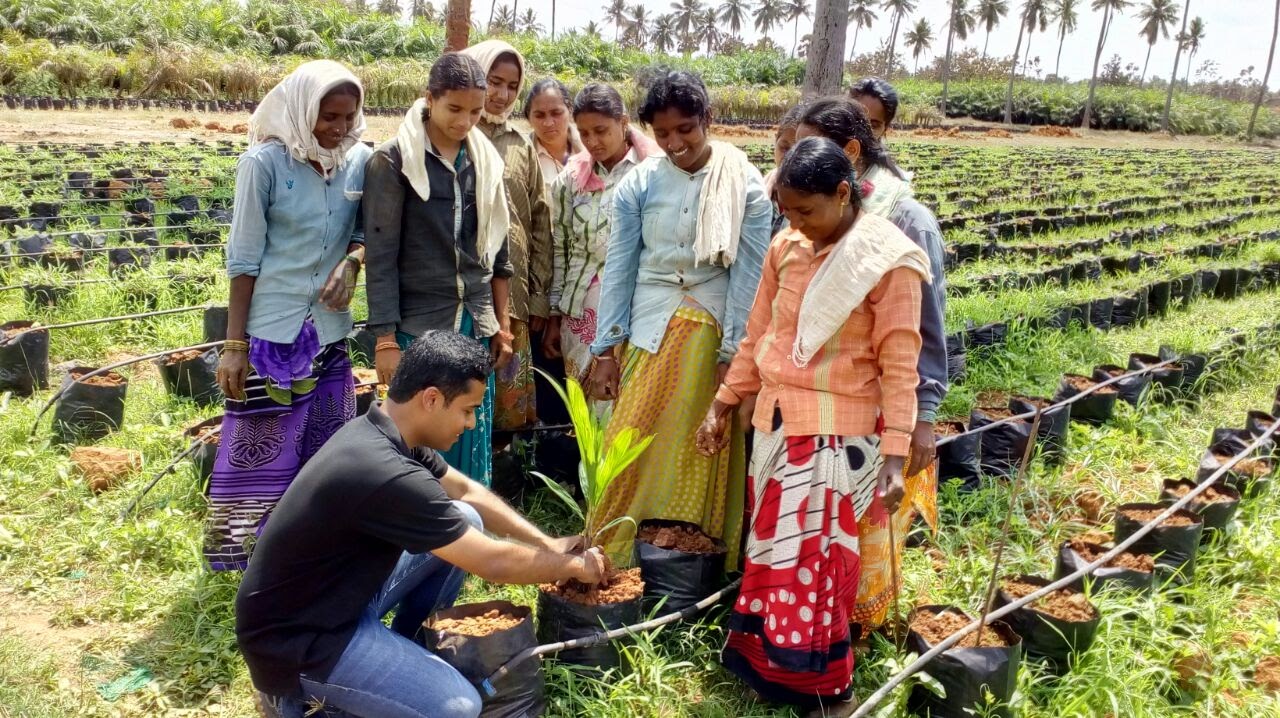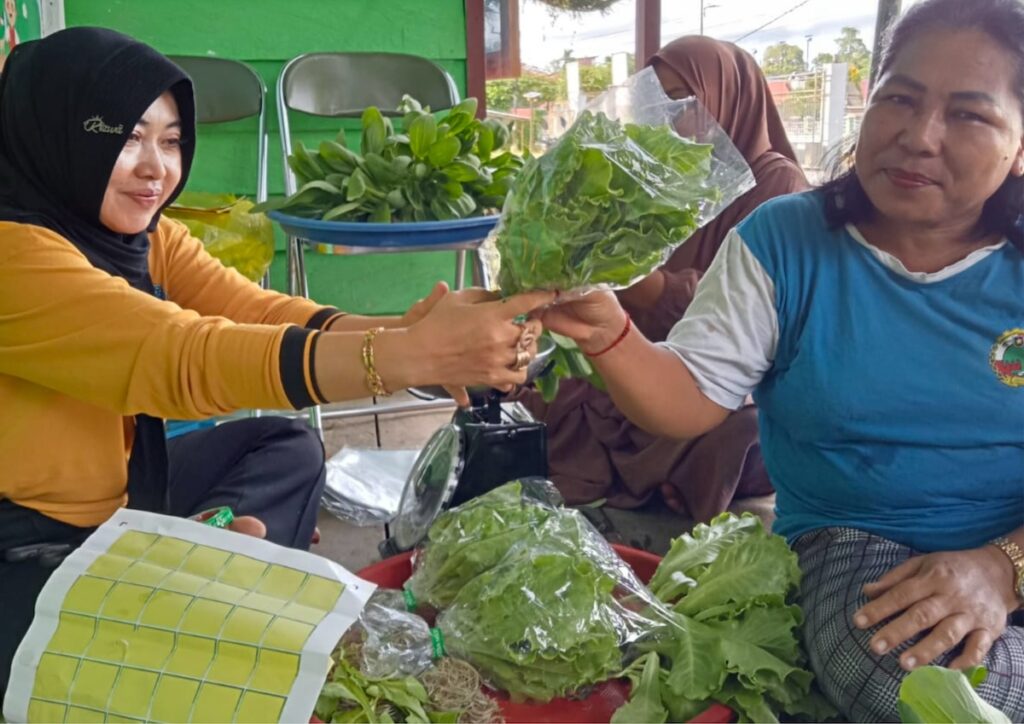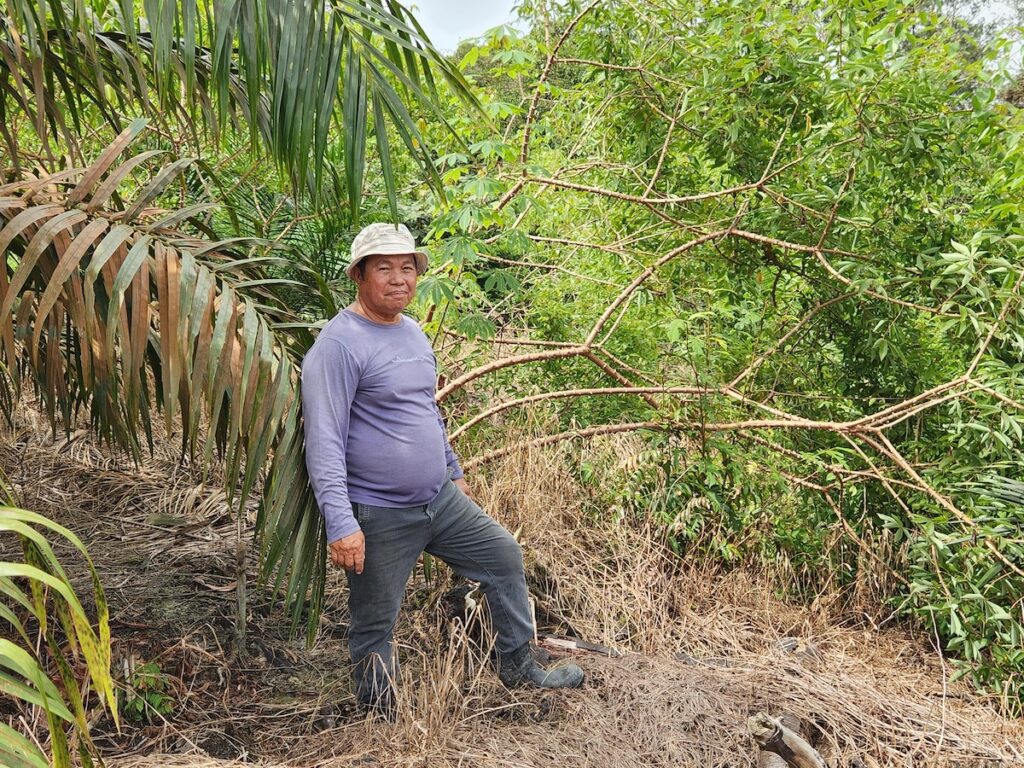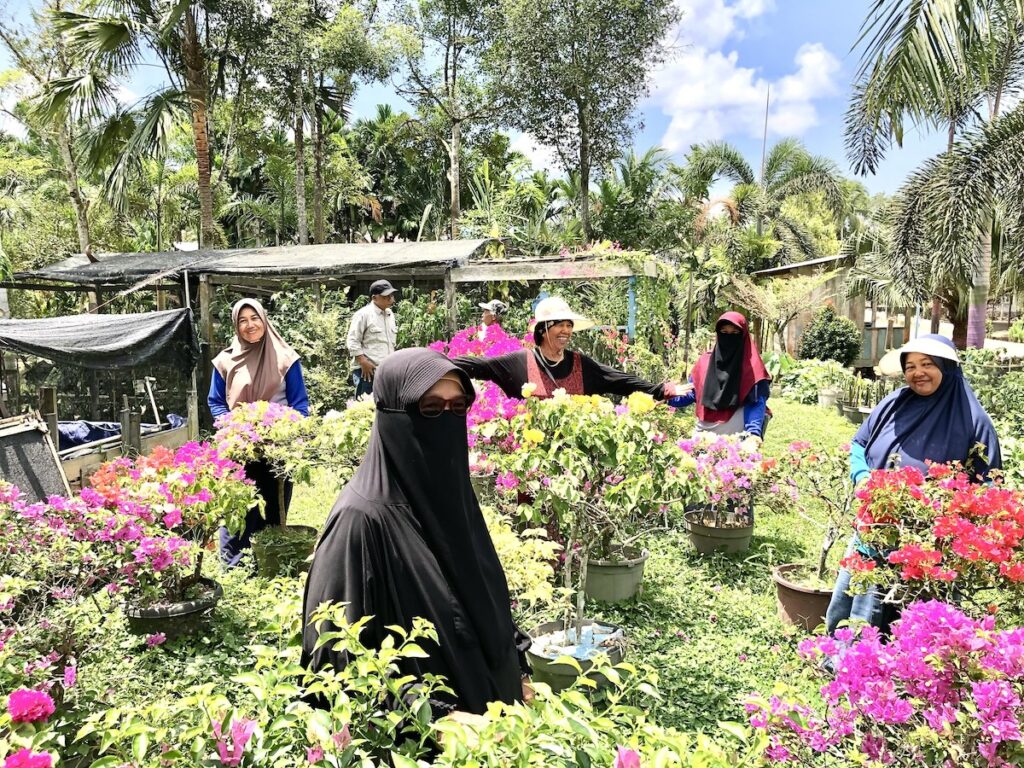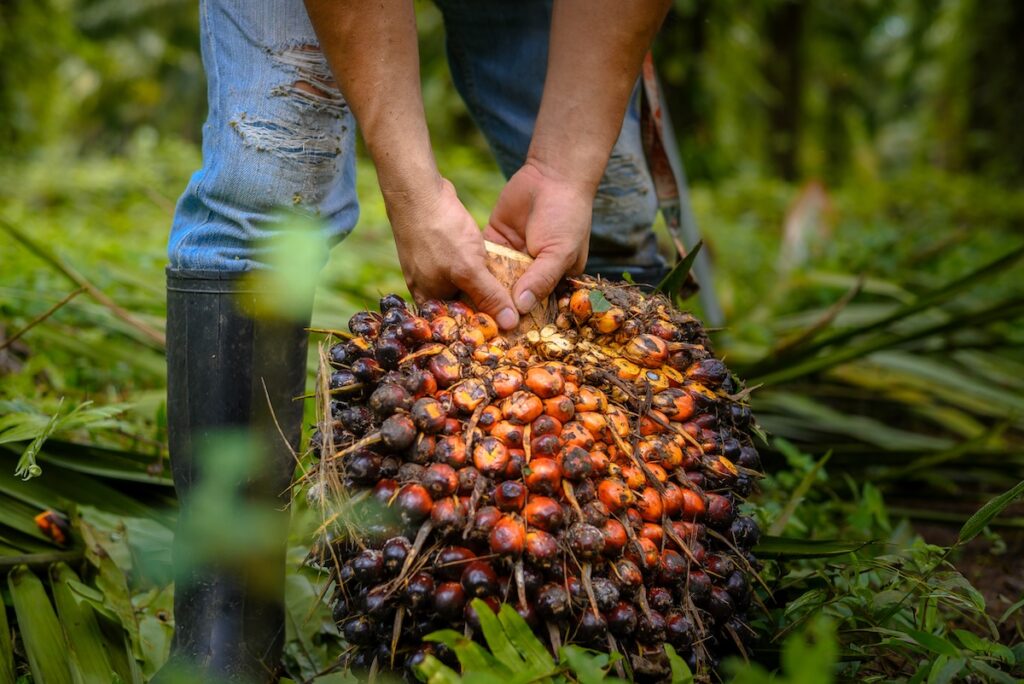Palm oil has surpassed all other oils to become the most consumed edible oil in the world. At present, the largest and fastest growing producing and consuming countries of palm oil are situated in Asia. Responsible for two thirds of consumption, India, China, and Indonesia account for 40 percent of all pathways to promote sustainable trade between key trading nations. At the same time, the production of palm oil is dominated by Indonesia and Malaysia, accounting for 85–90 percent of total palm oil produced. With increased trade, the commodity also witnessed an increase in the introduction and adoption of sustainability standards.
While two decades ago Voluntary Sustainability Standards (VSS) were non-existent in palm oil, in 2016 17.4 percent of all oil palm fruit production or 52 million tonnes was VSS-compliant. The first sustainability standard introduced in this sector was the Roundtable on Sustainable Palm Oil (RSPO) in 2004. By 2011, The Indonesian government introduced the Indonesian Sustainable Palm Oil (ISPO) standard, to ensure that Indonesian oil palm growers conform to higher agricultural standards. This was followed by the Malaysian government who launched the Malaysian Sustainable Palm Oil (MSPO) in 2013.
What has been witnessed in the past years is that trade between the two production dominating countries, Indonesia and Malaysia, and the two consumption dominant countries, India and China, have hit rough patches. Additionally, the global standards and Voluntary Sustainability standards introduced have not showcased acceptance by the governments, industry players, and associations, thus restricting its expected impact. Producing countries were also concerned about the one-size-fits all approach international standards promoted without sufficiently considering the characteristics and needs of specific types of producers, notably smallholders. In such circumstances, it became imperative to introduce a common and coordinated approach that would balance trade, protect national interests of countries, while improving smallholder livelihood and reducing the impact on the environment.
As a solution, Solidaridad believed that engagement with national governments was a primary step towards creation of regional consensus on sustainability issues around palm oil production and trade governed by national laws and legislations. In 2016, Solidaridad launched the Asian Sustainable Palm oil Network (ASPN) to create a space for negotiation and support industry actors to discuss issues linked to domestic vegetable oil market in India and China. The programme aimed and succeeded in providing an opportunity to prepare a strong base for achieving policy influencing for sustainable palm oil production and trade and facilitated smallholders’ inclusion on sustainable production and trade of palm oil. Two of the biggest achievements made in the Palm Oil sector through the ASPN project have been the following:
Development of an Indian national sustainability standard – Indian Palm Oil Sustainability Framework (IPOS)
Solidaridad believes in national standards as a tool to build more robust systems, including ISPO and MSPO. This is based on the conviction that national standards are key instruments to raise the floor for all actors, something which many international standards do not manage to achieve. Thus, Solidaridad initiated the development and launch of the Indian Palm Oil Sustainability (IPOS) framework, which was significant for the industry as it is tailored to the need of Indian palm oil industry, concentrating on improving productivity, working conditions and environmental performance of smallholders. IPOS also provides India’s own sustainability benchmark to Indian industry for sustainable production and procurement.
The first certification of IPOS was completed by the leading Indian industry i.e. Godrej Agrovet Ltd., showcasing a step forward towards the promotion of the agenda of IPOS and enhancing the credibility and sustainability performance of Indian palm oil industries. To manage and facilitate the day-to-day activities of IPOS, a council has been formed along with Solvent Extract Association, SEA-IPOS Council. The importance of partnering with SEA stems from their crucial role in trade negotiation as representatives of palm oil import lobbying for private companies in India.
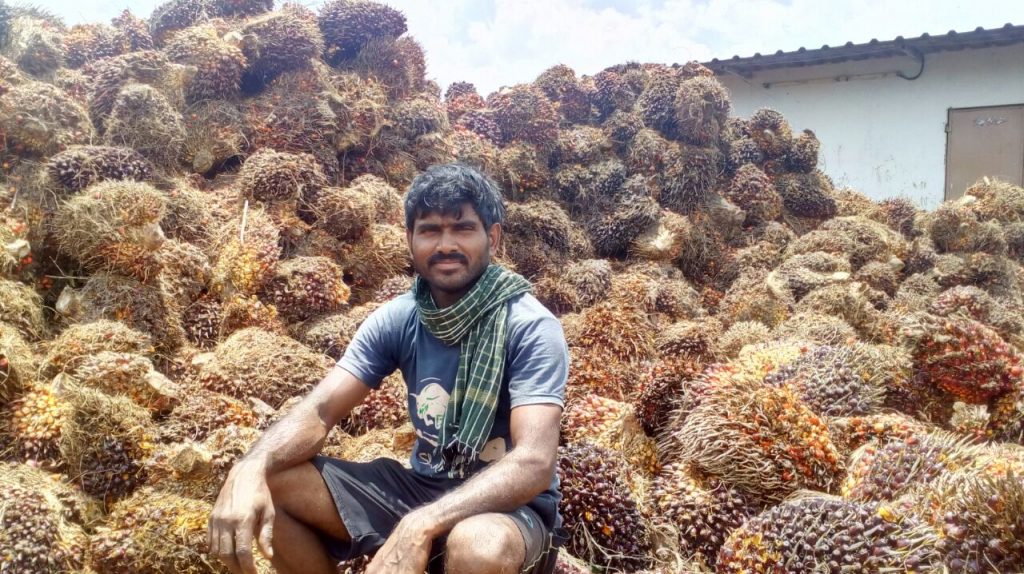
A mutual recognition between IPOS and MSPO and ISPO
Solidaridad through the platform urged the governments to collaborate, which led to the signing of an equivalence agreement between IPOS-ISPO and IPOS-MSPO. The MoU recognizes the Indonesian Sustainable Palm Oil (ISPO) and the Indian Palm Oil Sustainability (IPOS) Framework as legitimate sustainability frameworks for palm oil production for trade between Indonesia and India, thus safeguarding the competitiveness of the palm oil industry. The agreement also ensured the active involvement in policy dialogues of key market players of the industry in both countries like local CSOs, Business Watch Indonesia, CUKK, SPKS, SOPOPRAD, The Dayak Oil Palm Planters Association Doppa etc.
Through the launch of a multi-stakeholder platform, new initiatives were spurred that addressed and amalgamated key knowledge and policy gaps around sustainability challenges like climate risks, land use, product quality and price management. The network has supported the Indonesian and Malaysian government in strengthening their national oil palm standards.
Through its efforts, ASPN has created strong partnerships of private and public stakeholders from Malaysia, Indonesia, India and China. It has helped in increasingly influencing bilateral trade discussions between the members.

